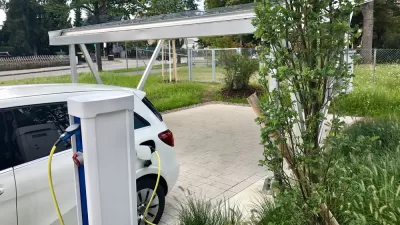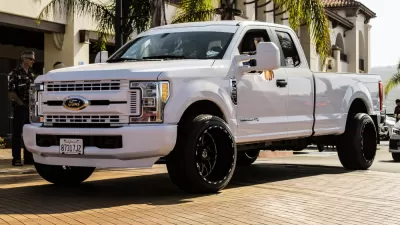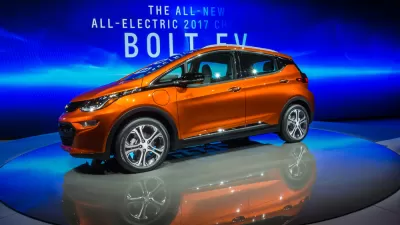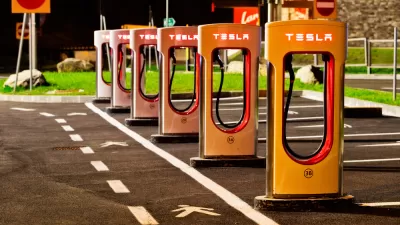By 2030, the world's consumption of oil will drop due to increasing electric vehicle sales, according to a report by Bank of America. Other researchers disagree on the timeframe. The report is useful for highlighting the term, "peak oil demand."

Forty percent of global light duty vehicle sales will be electric vehicles by 2030, causing "global oil demand to peak by 2030,” according to a Bank of America Merrill Lynch analysis emailed to Bloomberg News.
"Despite strong global oil consumption helping to push crude prices higher, the rise of electric vehicles [EVs] is seen as one of the biggest long-term threats to demand," reports Alex Longley on the B of A analysis on Jan. 22. This graph tracking projected EV sales and global oil demand forecast shows the latter peaking around 2030.
Most oil companies see demand peaking around 2040, while Royal Dutch Shell Plc has said it expects to see demand peak in the early 2030s.
Consultancy Wood Mackenzie said late last year that it expects oil demand growth to crawl, but not peak, by 2035, forcing major energy companies to shift from oil to natural gas and chemicals.
"About 60 percent of oil is used in transportation, which is also where the biggest technological changes are emerging," report Jess Shankleman and Hayley Warren for Bloomberg Businessweek on Dec. 21, 2017. They delve deeper into the different "peak oil demand" forecasts and also look back at the old, now discredited predictions of peak oil supply.
Wall Street Journal reporters Lynn Cook and Elena Cherney reported on "peak oil demand" on May 21, 2017.
There's a growing consensus that the end of ever-rising consumption is in sight. The big question that many oil companies are debating: When?
A related post last July on an analysis by Bloomberg New Energy Finance focused on the outlook for electric vehicles predicts that EVs will outsell passenger vehicles with internal combustion engines by 2040 due to a plunge in battery prices and improvement in battery technology. The posts indicates that oil companies do not see EVs as that big a threat. That reaction may be changing now.
Hat tip to Nan Hildreth.
FULL STORY: BofA Sees Oil Demand Peaking by 2030 as Electric Vehicles Boom

Planetizen Federal Action Tracker
A weekly monitor of how Trump’s orders and actions are impacting planners and planning in America.

Chicago’s Ghost Rails
Just beneath the surface of the modern city lie the remnants of its expansive early 20th-century streetcar system.

San Antonio and Austin are Fusing Into one Massive Megaregion
The region spanning the two central Texas cities is growing fast, posing challenges for local infrastructure and water supplies.

Since Zion's Shuttles Went Electric “The Smog is Gone”
Visitors to Zion National Park can enjoy the canyon via the nation’s first fully electric park shuttle system.

Trump Distributing DOT Safety Funds at 1/10 Rate of Biden
Funds for Safe Streets and other transportation safety and equity programs are being held up by administrative reviews and conflicts with the Trump administration’s priorities.

German Cities Subsidize Taxis for Women Amid Wave of Violence
Free or low-cost taxi rides can help women navigate cities more safely, but critics say the programs don't address the root causes of violence against women.
Urban Design for Planners 1: Software Tools
This six-course series explores essential urban design concepts using open source software and equips planners with the tools they need to participate fully in the urban design process.
Planning for Universal Design
Learn the tools for implementing Universal Design in planning regulations.
planning NEXT
Appalachian Highlands Housing Partners
Mpact (founded as Rail~Volution)
City of Camden Redevelopment Agency
City of Astoria
City of Portland
City of Laramie





























